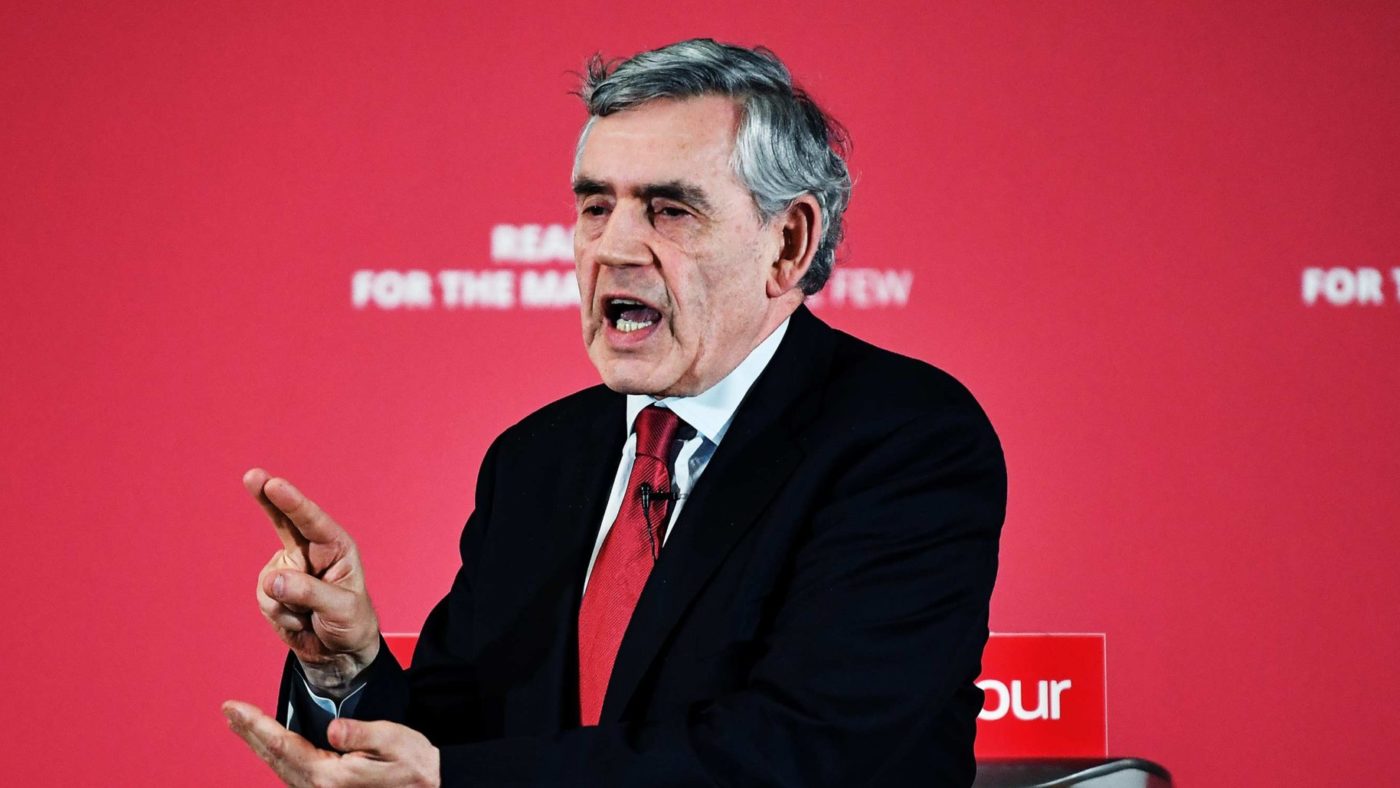At the weekend former PM Gordon Brown claimed that a ‘no deal’ Brexit would leave Boris Johnson isolated “with no friends around the world”. This is a familiar theme. In 2019, for example, Brown warned that the UK was ‘“sleepwalking into oblivion”, and that a nation once admired for its tolerance and pragmatism now presented ‘an ugly picture’. This is, of course, way over the top.
In part this is simply the usual scaremongering about the economic fallout from ‘no deal’. Most would at least agree that it would be preferable to exit the transition period with a fair and balanced UK-EU Free Trade Agreement (FTA) in place. Indeed, this is what the UK government is aiming for.
However, Brown, like many others, has exaggerated the economic differences between what is actually on offer from the EU and ‘no deal’, describing the latter as “an economic war with Europe that would cost us very dearly”.
Even the pessimistic analysis published last month by the OBR suggests that a ‘no deal’ Brexit would only reduce GDP growth by 2% in the short term (which would still be consistent with a strong rebound in 2021), and that the long-run impact would also be no greater than 2%, relative to agreeing a standard FTA. These are not game-changing numbers and would be lost in the fog of Covid.
Brown’s comments don’t hold up as a piece of political analysis, either. For a start, the EU itself is not as united as some seem to think. There are obvious tensions between Germany and France over the approach to the Brexit talks, and between the ‘core’ countries and others, including Hungary and Poland, on many other issues.
Consistent with this, the latest Eurobarometer poll shows that there are now only 15 member states where a majority of respondents trust the EU (down from 18 in 2019), with the lowest proportions in Greece (32%), France (30%) and Italy (just 28%).
Put another way, the eurosceptics in the UK still have plenty of friends in the rest of Europe. I’m sure many of them are looking with envy at the way the UK has broken from the pack to accelerate the rollout of Covid vaccines, rather than follow the ‘common strategy’ and ‘central procurement process’ favoured by the European Commission.
Many will also have noticed how being outside the euro (some credit here at least to Brown) has helped the UK to implement a set of macroeconomic policies that the IMF has described as “one of the best examples of coordinated action globally”.
Indeed, I’d go further: the responses to the pandemic have again underlined the weaknesses of supra-national organisations of the sort that Brown idealises, from the EU to the World Health Organisation itself.
Brown is wrong too on the global fallout from a potential ‘no deal’ Brexit. He claimed on Sunday that “we would also be in an economic war with America, because there would be no chance of a trade treaty with America”. This is just daft, on several levels.
For a start, the UK does not have a “trade treaty with America” today and yet clearly we are not at “economic war” with the US. However, as long as we are locked into the Single Market and Customs Union we are still likely to suffer the collateral damage from trade spats between the US and the EU.
What’s more, it would be impossible to do an independent UK-US deal had it not been for Brexit. If anything, exiting the transition period without a UK-EU FTA would make a UK-US deal easier: the politics might be trickier, depending on the impact on the Irish peace process (surely much less than feared), but the economics would be simpler.
As to the suggestion that Boris Johnson will have “no friends around the world”, I suspect that many independent observers watching the Brexit negotiations would be at least as critical of the approach taken by EU countries. It has not gone unnoticed that France in particular has threatened to derail the Brexit talks with “last-minute demands”.
In the meantime, the reality is that the UK has already rolled over (or improved upon) the bulk of the trade deals it had with third countries as a result of EU membership. There is no good reason to think we have any fewer friends in Canada, Japan, or South Korea.
Finally, retaining the option of walking away from the Brexit talks has surely improved the chances of getting a better deal both from the EU and in other negotiations still to come. Taking a tough line now is far more likely to impress our future negotiating partners in Beijing or Delhi. It certainly beats bending the knee to Brussels
Click here to subscribe to our daily briefing – the best pieces from CapX and across the web.
CapX depends on the generosity of its readers. If you value what we do, please consider making a donation.


